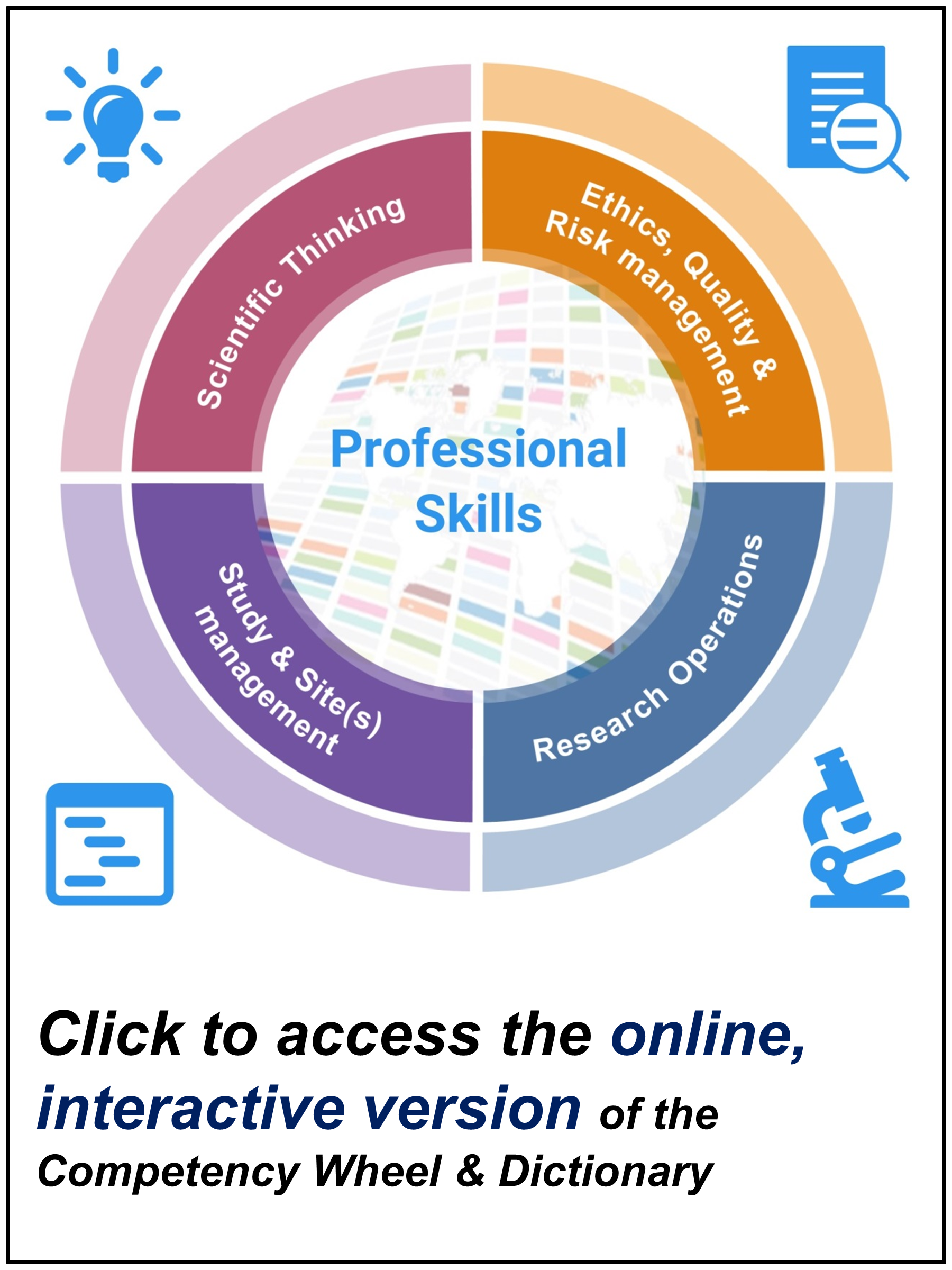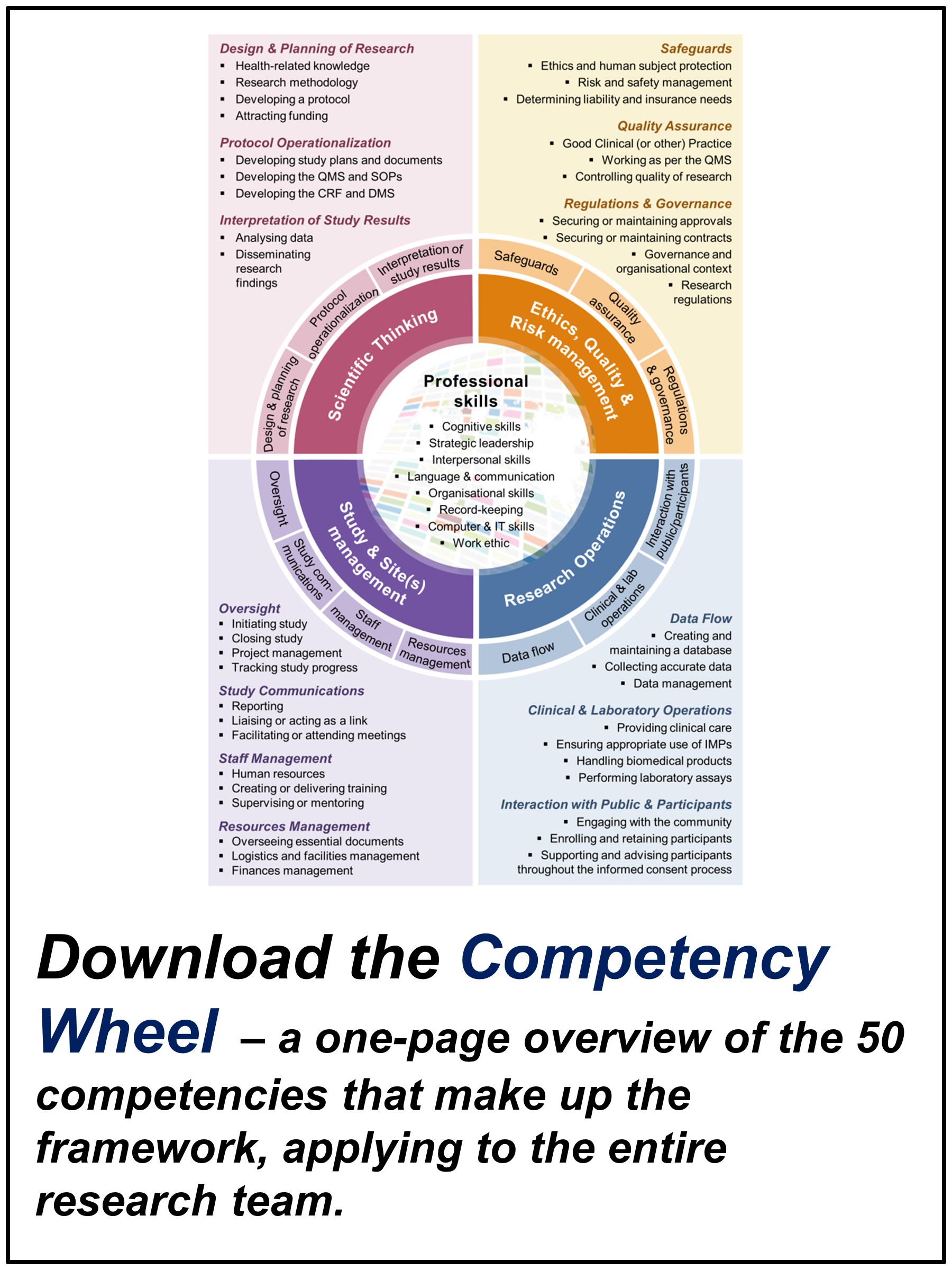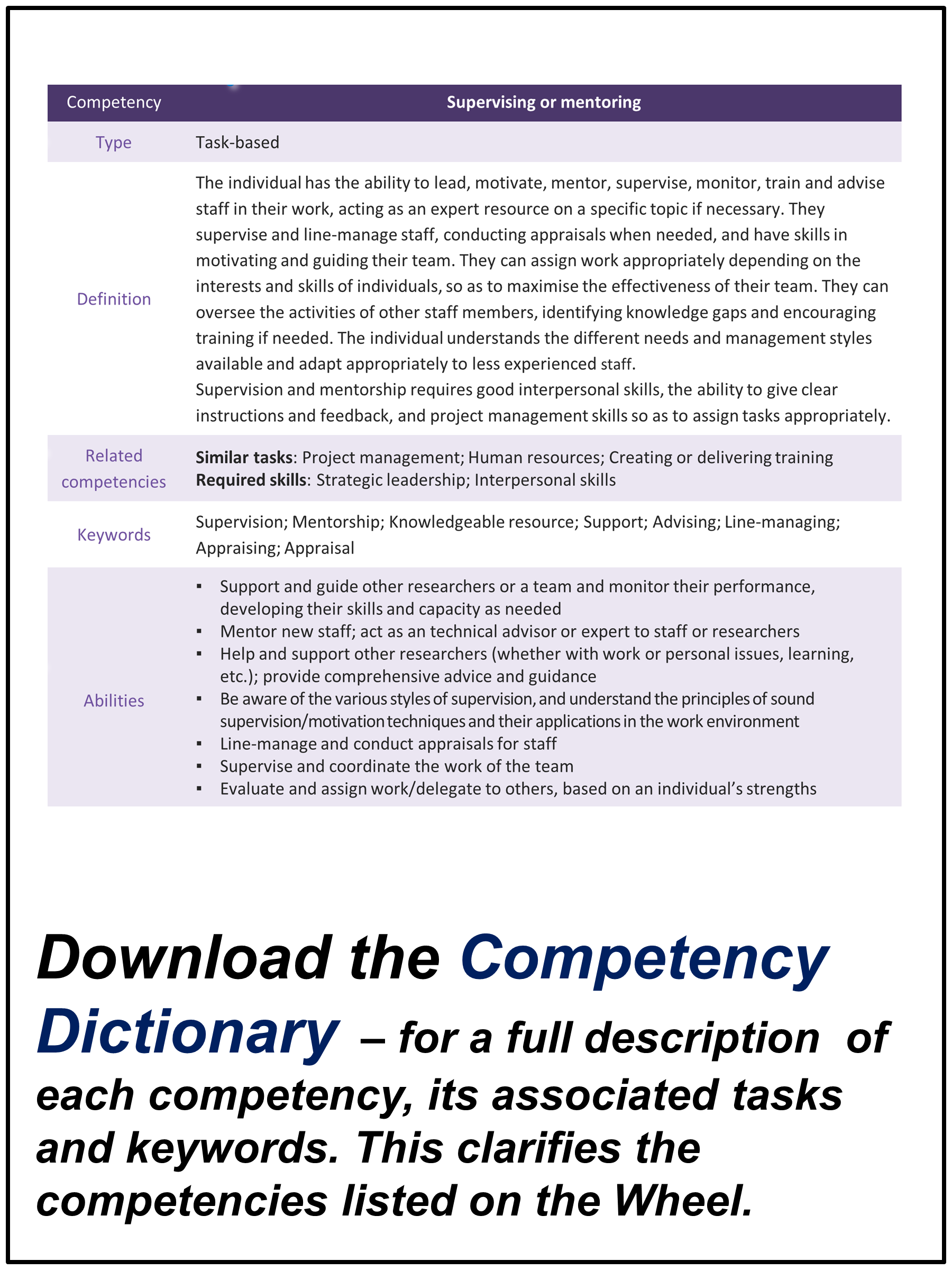
What is it?
The TDR Global Competency Framework for Clinical Research is a flexible framework which lists all the competencies that should be demonstrated by a research team to carry out a successful study. The framework can be applied to any research study, regardless of the size of the team, place, disease focus and type of research. Together with its supporting tools, the framework can be used to plan staffing requirements for a study, to carry out appraisals of staff, to guide career development, and to create educational curricula for research staff.
The Special Programme for Research and Training in Tropical Diseases (TDR) and researchers from The Global Health Network led the development of this framework, to bridge the lack of information about clinical research roles, especially for those working in low and middle income countries (LMICs). It has been developed alongside experts and collaborators from around the world.
What are the parts of the framework, and how does it work?
The framework consists of several complementary parts, including the Competency Wheel (overview) and Dictionary (explanation) which can be downloaded below.
What can I do?
You can use the framework in its current form for whatever you like: staff appraisals, assisting in your own career development, for planning the team you need for a new trial, for creating a new training programme - anything you like. You will find a full explanation of how to use the different parts of the framework in the User Guide available below.
Research Competency Scoring
|
Grade |
Definition |
|---|---|
|
N/A |
Not applicable (e.g. if the competency is not useful for the role of the individual) |
|
0 |
Task: No experience; never performed the task before Knowledge: No exposure; never heard of the topic before Skill: Unable to use skill |
|
1 |
Task: Little experience, but received training Knowledge: Little exposure; but followed courses or read about the topic Skill: Use skill with difficulty and/or very rarely |
|
2 |
Task: Some experience; already performed the task at least once Knowledge: Some exposure; already applied knowledge of topic in thier job at least once Skill: Use skill inconsistenly and occasionally |
|
3 |
Task: Capable to perform task Knowledge: Knowledgeable; frequently apply knowledge of topic Skill: Use skill appropriately, but only occasionally |
|
4 |
Task: Experienced; regularly perform the task in their job Knowledge: Highly knowledgeable; use, reflect, critically evaluate information related to the topic Skill: Use skill appropriately, in all relevant situations |
|
5 |
Task: Highly experienced; able to train and guide others Knowledge: Expert knowledge;able to teach and assess others Skill: Use skill appropriately, consistently and confidently |



